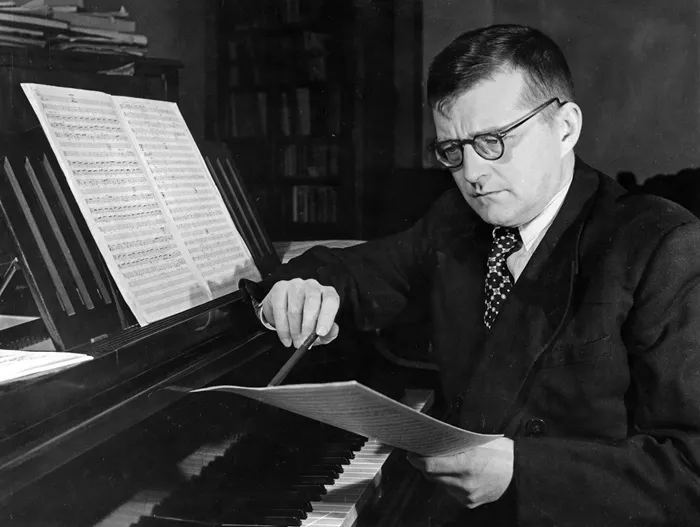Classical music, with its timeless appeal, has captivated audiences for centuries. At the heart of this genre are the composers whose genius and creativity have shaped the landscape of classical music through the ages. In this article, we delve deeper into the lives and works of the top 10 classical composers, celebrating their enduring contributions to the world of music.
1. Johann Sebastian Bach (1685-1750)
Johann Sebastian Bach, often regarded as the master of Baroque music, left a profound and lasting legacy with his compositions. His intricate fugues, passionate choral works, and keyboard masterpieces continue to inspire musicians and listeners alike, showcasing his unparalleled skill in crafting complex yet harmonious musical structures that have stood the test of time. Key works such as the “Brandenburg Concertos,” “Mass in B Minor,” and “The Well-Tempered Clavier” demonstrate Bach’s mastery of diverse musical forms and his ability to evoke a range of emotions through his music.
2. Wolfgang Amadeus Mozart (1756-1791)
Mozart’s prodigious talent and prolific output established him as a musical prodigy whose works have become synonymous with classical elegance and beauty. His operas, symphonies, and chamber music showcase his unparalleled gift for melody and innovation, blending intricate musical phrases with emotional depth. Key works such as “The Marriage of Figaro,” “Symphony No. 40 in G Minor,” and “Piano Concerto No. 21 in C Major” highlight Mozart’s ability to capture the essence of human emotion and translate it into musical masterpieces that resonate across generations.
3. Ludwig van Beethoven (1770-1827)
Beethoven’s revolutionary compositions bridged the Classical and Romantic eras, expanding the boundaries of musical expression and paving the way for modern symphonic music. His symphonies, piano sonatas, and string quartets reflect his profound emotional depth and creative vision, with works such as “Symphony No. 9 in D Minor” and “Moonlight Sonata” becoming iconic representations of his innovative spirit and enduring legacy in the world of classical music.
4. Franz Schubert (1797-1828)
Schubert’s lyrical melodies and heartfelt compositions epitomize the Romantic spirit, capturing the essence of love, longing, and melancholy in his music. His lieder (art songs), symphonies, and chamber music reveal a sensitive and introspective approach to music, with works like “Ave Maria” and the “Unfinished Symphony” showcasing his ability to evoke deep emotions and create musical landscapes that resonate with audiences on a profound level.
5. Pyotr Ilyich Tchaikovsky (1840-1893)
Tchaikovsky’s emotionally charged compositions and vivid orchestration captivate audiences worldwide, blending Russian folk influences with Western musical traditions to create works of timeless beauty and passion. His ballets, symphonies, and concertos, including “Swan Lake,” “Symphony No. 6 (Pathétique),” and “Piano Concerto No. 1,” demonstrate his ability to weave intricate musical narratives and evoke a range of emotions, from joy and exuberance to profound sadness and introspection.
6. Johannes Brahms (1833-1897)
Brahms’s meticulous craftsmanship and romantic lyricism characterize his orchestral and chamber works, showcasing a blend of classical formality and expressive depth. His symphonies, concertos, and piano pieces, such as “Symphony No. 4 in E Minor” and the “Violin Concerto in D Major,” highlight his ability to balance intricate musical structures with emotional resonance, creating music that is both intellectually stimulating and emotionally moving.
7. Frédéric Chopin (1810-1849)
Chopin’s elegant piano compositions and nuanced expressiveness make him a quintessential figure in Romantic music, with works that embody grace, passion, and introspection. His nocturnes, études, and ballades reveal a delicate yet passionate musical voice, with pieces like the “Nocturne in E-flat Major” and the “Funeral March Sonata” showcasing his mastery of the piano and his ability to convey deep emotions through music.
8. Claude Debussy (1862-1918)
Debussy’s impressionistic style and innovative harmonies revolutionized classical music in the late 19th and early 20th centuries, ushering in a new era of musical experimentation and exploration. His piano works, orchestral tone poems, and opera “Pelléas et Mélisande” evoke dreamlike atmospheres and sensory impressions, with compositions like “Clair de Lune” and “La Mer” capturing the essence of nature and human emotion in a uniquely evocative manner.
9. Igor Stravinsky (1882-1971)
Stravinsky’s avant-garde compositions and rhythmic complexity had a profound impact on 20th-century music, challenging traditional musical forms and pushing the boundaries of musical expression. From his groundbreaking ballets like “The Rite of Spring” to neoclassical works, he explored new musical territories and expanded the possibilities of what music could be, leaving a lasting legacy of innovation and experimentation in the classical music world.
10. Antonín Dvořák (1841-1904)
Dvořák’s fusion of Czech folk melodies with classical forms resulted in vibrant and melodious compositions that captured the spirit of his native land. His symphonies, chamber music, and operas showcase a rich tapestry of Slavic musical traditions, with works like the “New World Symphony” and the “Cello Concerto in B Minor” demonstrating his ability to blend folk influences with classical elegance, creating music that is both accessible and deeply rooted in cultural heritage.
Conclusion
The top 10 classical composers mentioned above represent a diverse range of styles, eras, and cultural influences within classical music. Their enduring legacy continues to inspire generations of musicians and audiences, showcasing the timeless beauty, emotional depth, and innovative spirit of classical compositions that have stood the test of time and continue to resonate with listeners around the world.

